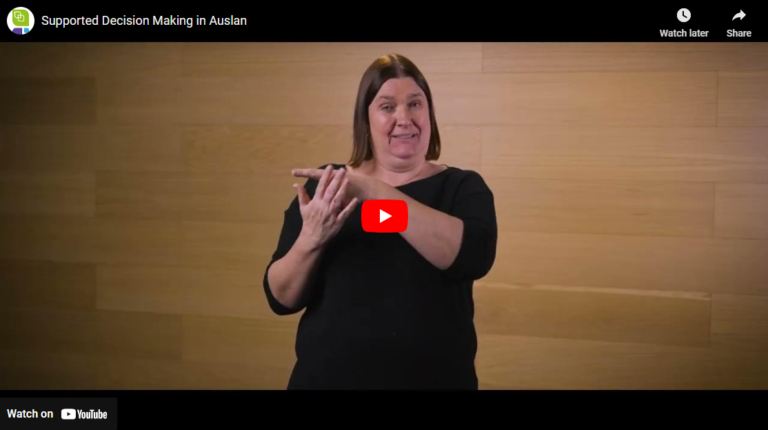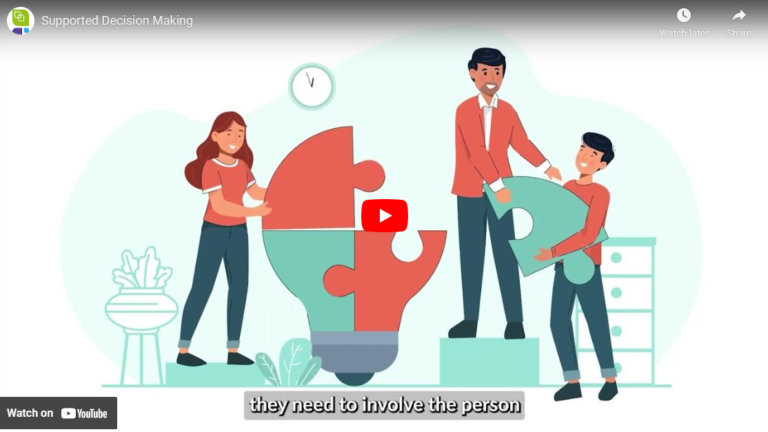Supported Decision-Making | Article
Supported Decision-Making and Restrictive Practices The United Nations Convention on the Rights of Persons with Disabilities says that people with disabilities have the right to
Information Kit
Find out more about Supported Decision Making in Western Australia, from our factsheets, videos and online legal information course for disability related legal matters.
The United Nations Convention on the Rights of Persons with Disabilities says that people with disabilities have the right to make decisions about their own lives. However, this hasn’t always been the case for people with disabilities. In the past, other people have made decisions for them. Today have changed. Australia’s National Disability Insurance Scheme (NDIS) is moving away from having someone else make decisions for people with disabilities. Instead, they are moving toward a new model called “supported decision-making.”
Supported decision-making means that people with disabilities get help and support so they can make their own decisions about their lives. This includes things like healthcare, finances, and relationships. The goal is to help people with disabilities have more control over their lives.
In supported decision-making, it is assumed that the person with a disability can make their own decisions, unless there is evidence that they can’t. If they need help, the support is given in a way that works for them. This way, they can keep their human rights and independence.
Sometimes, rules are put in place to keep people with disabilities safe. However, these rules can limit their freedom. Supported decision-making helps people with disabilities make decisions about these rules and their safety.
If someone is working with a person with a disability, like an NDIS Behaviour Support Practitioner, they need to involve the person in making decisions about their care. They also need to make sure the person and their family and friends understand any rules that might be put in place to keep them safe.
Supported decision-making practice in Australia is guided by four principles from the Australian Law Reform Commission (2014):
When it comes to supporting individuals in making decisions about restrictive practices, the principles of positive behaviour support are applicable in practice. Here are some examples of these principles:
Here are some simple guidelines to support people with disabilities in decision-making:
For enquiries about the Policy, please contact the Department of Communities – authorisation of restrictive practices team:
Email: ARP@communities.wa.gov.au
Phone: (08) 9426 9200 or free call 1800 998 214
TTY: (08) 9426 9315
Fax: (08) 9226 2306
Supported Decision-Making and Restrictive Practices The United Nations Convention on the Rights of Persons with Disabilities says that people with disabilities have the right to

Supported Decision Making | Auslan Recent Posts Was this page helpful? Submit Cancel Thanks for your feedback!

Supported Decision Making | Animation Recent Posts Was this page helpful? Submit Cancel Thanks for your feedback!
Our Information Kits have been made possible by research funded by the Department of Communities, Disability Justice Advocacy Project and the development of accessible resources funded by the Department of Social Services, National Disability Advocacy Program.

